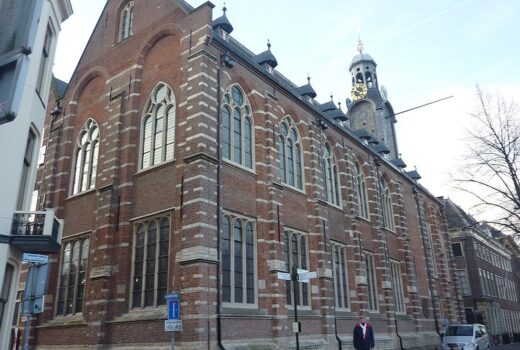Schotse koning groot schrijver

De British Library vond deze brief tussen allerlei andere stukken uit de tijd dat de Engelse koningen de Schotten weer eens trachtten te onderwerpen. Robert schreef daarover aan zijn Engelse collega, Edward II, bekend als een van de hoofdpersonen van de koningsdrama’s van Shakespeare. Roberts smeekbede om vrede en respect is een literair juweel.
Eén zin eruit laat dat al zien in al zijn bijna rococo-complexiteit en rijke flue de bouche. “Everything which we and our people will be able to do by bodily service, or to bear by giving freely of our goods, for the redemption of good peace and for the perpetually flourishing grace of your good will, we are prepared and shall be prepared to accomplish in a suitable and honest way, with a pure heart.”
God and public decency
Zo zouden de EU-leiders voortaan met elkaar moeten verkeren in hun onderlinge boodschappen! U leest de brief in zijn geheel hieronder.
‘To the most serene prince the lord Edward by God’s grace illustrious king of England, Robert by the same grace king of Scots, greeting in Him through whom the thrones of those who rule are governed. When, under the sweetness of peace, the minds of the neighbouring faithful find rest, then life is adorned with good conduct, and also the whole of Holy Mother Church, because the affairs of kingdoms are everywhere arranged more favourably by everyone.’
‘Our humbleness has led us, now and at other times, to beseech your highness more devoutly so that, having God and public decency in sight, you would take pains to cease from our persecution and the disturbance of the people of our kingdom in order that devastation and the spilling of a neighbour’s blood may henceforth stop. Naturally, everything which we and our people will be able to do by bodily service, or to bear by giving freely of our goods, for the redemption of good peace and for the perpetually flourishing grace of your good will, we are prepared and shall be prepared to accomplish in a suitable and honest way, with a pure heart.’
‘And if it accords with your will to have a discussion with us on these matters, may your royal sublimity send word in writing to us, by the bearer of this letter. Written at Kildrum in Lennox, the Kalends of October in the fifth year of our reign.’
Geen abjecte cvapitulatie
De onderzoekers leggen uit waarom deze brief zo uniek genoemd kan worden. Zij raakt namelijk het hart van het conflict tussen de Schotten en koning Edward en werd geschreven tijdens een van de heftigste momenten van de oorlog tussen Robert the Bruce en de Engelsen.
“The letter is a passionate plea by one king to another for peace between their peoples. It is not unusual for correspondence of this kind to indulge in heightened prose. It is striking, nonetheless, how Edward is addressed in the most exalted terms, while Robert refers to himself with conspicuous humility. The writing is eloquent in its appeal for normal relations between neighbouring peoples to be restored. Robert and his people, it claims, are ready to do anything in their power and to give anything they can to achieve this.”
“What needs to happen is that Edward stops persecuting Robert and ceases from devastating his kingdom. The letter is meant to show that Robert sincerely wishes to open negotiations, and is willing to discuss anything that would lead to establishing peace. This is not, however, an abject capitulation. One matter is not up for debate. The negotiations would be conducted between kings. Robert’s status as king, and the Scots’ existence as a people, is taken for granted throughout the letter.”
Exceptionally well crafted
“Unfortunately this was the issue which lay at the heart of the conflict. The vividly conciliatory words speak simultaneously of peace and of a steely determination to vindicate Robert’s claim to be king of an independent kingdom. It is an exceptionally well crafted explanation of Robert’s position in the face of English aggression.”
“There is a context that matches this precisely. On 1 October 1310—the fifth year of Robert I’s reign—Edward II was in Biggar, where he had arrived a few days earlier in his first major campaign against Robert Bruce. The letter is dated at Kildrum, now part of Cumbernauld, just under 40 miles from Biggar—a day’s horse-ride away. The place and time fits for Robert to have learnt of Edward II’s advance from Roxburgh (near the border) to Biggar, and then to have sent the letter to Edward II within a couple of days. And the content fits the situation.”
Meest Gelezen
Wederom intimidatie van journalisten door universiteit, nu in Delft
‘Burgerschapsonderwijs moet ook verplicht worden in hbo en wo’
Raad van State: laat taaltoets nog niet gelden voor hbo-opleidingen
Vrouwen houden universiteit draaiende, maar krijgen daarvoor geen waardering
Extra geld voor bètafaculteiten is daar nooit terechtgekomen


